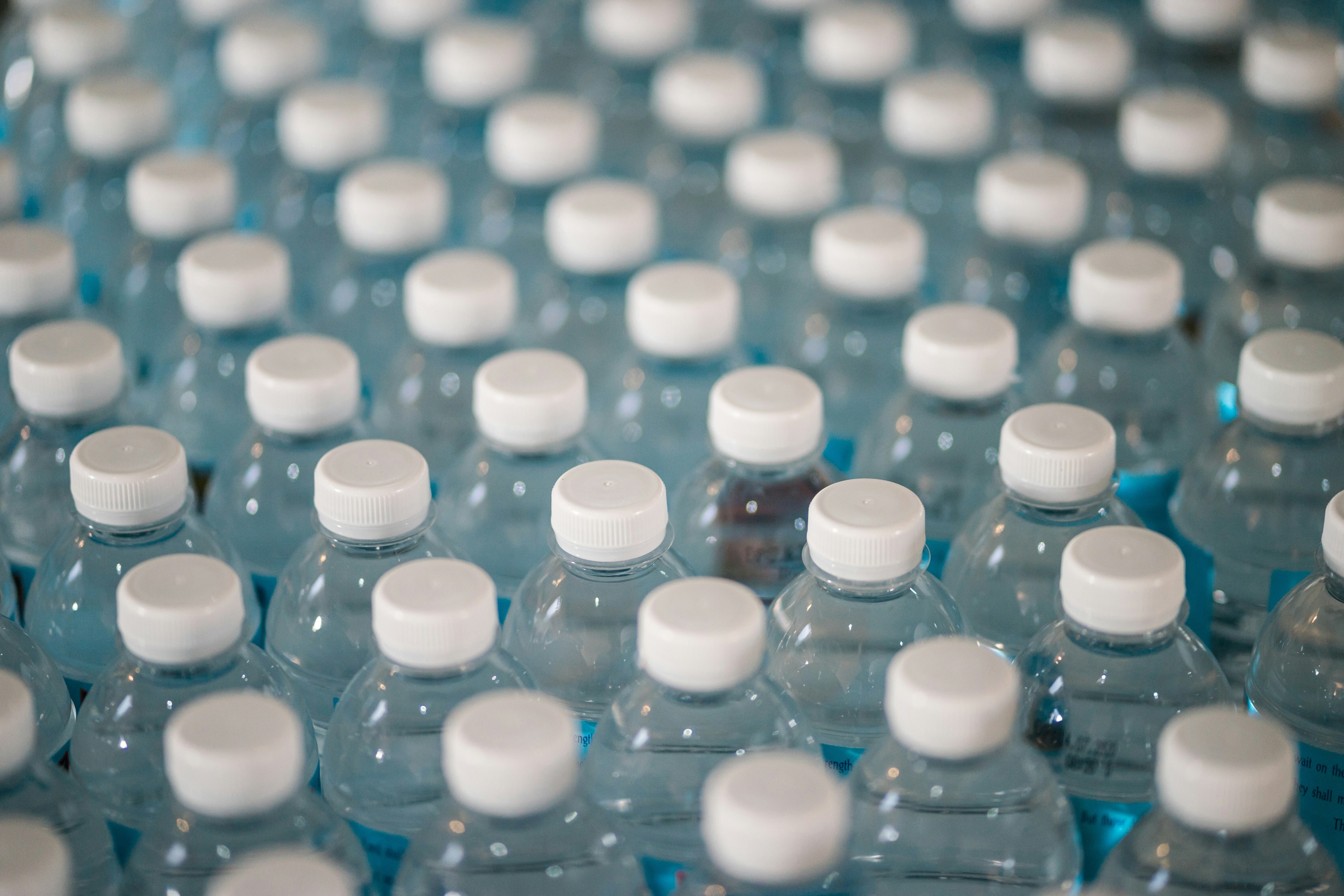Earth Day 2024: These 4 innovators have big ideas for developing a sustainable plastics ecosystem

Earth Day 2024 was an opportunity to raise awareness of the issue of unsustainable plastic production and usage.
Image: Unsplash/Jonathan Chng
Stay up to date:
Reuse Portal
- The theme of Earth Day 2024 is Planet vs Plastics, to raise awareness of the issue of plastic pollution.
- UpLink the World Economic Forum's open innovation platform, is supporting innovative start-ups working on critical sustainability challenges, including the shift towards a more sustainable plastics economy.
- Four leaders share innovations to reduce the impact of plastic and to usher in more sustainable methods of production and consumption.
As you settle down to read this article, take a look around you. How many items made of plastic can you see? The chances are, there are a lot.
Plastic is one of the most ubiquitous materials we manufacture - and we’re making more of it than ever. A comprehensive report from the OECD looking into the plastics lifecycle out to 2060 finds that “annual production of plastic has more than doubled in the last two decades, and is projected to triple by 2060”.
In 2019, the world was making 460 million tonnes of plastic each year. By 2060, that figure is estimated to hit 1,231 million tonnes, according to OECD projections.
With these projections in mind, the OECD has identified a number of pathways to reduce the world’s reliance on unsustainable production and use of plastic products.
These are organized into four pillars with the emphasis on curbing demand, creating a circular plastics lifecycle, enhancing recycling and more careful waste management to close “leakage pathways” that lead to waste plastic littering the oceans and the environment.
Innovations for more sustainable use of plastics
UpLink the World Economic Forum's open innovation platform, is supporting innovative start-ups working on critical sustainability challenges, including the shift towards a more sustainable plastics economy.
On the occasion of Earth Day 2024, we asked entrepreneurs from these early-stage impact-driven start-ups for their vision on how this can be achieved.
How can the world learn to live with plastic in a way that’s viable and sustainable?
TrashCon Labs
TrashCon operates automated systems for separating mixed waste into recyclable groups. They currently have 15 sites across India and are planning to expand globally.
Nivedha RM, CEO says: “The problem of plastics is like a giant mountain and all of us are but mere ants in front of it. We can only hope to solve the problem - as activists, policymakers and technology developers - if all of us come together with only one goal in mind; to ensure plastics do not end up in landfills, oceans or being incinerated, which only leads to further environmental impact."
Green Mining
This Brazilian innovator uses blockchain to power its reverse logistics systems for consumer packaging. Their technology ensures that all collected material is tracked, weighed and recorded at each stage for proper disposal.
Company CEO, Rodrigo Oliveira says: “Plastic's versatility and multipurpose nature render it incredibly valuable in enhancing the lives of the population. Given its immense value, it's imperative that we maximize its utility by embracing continuous use, reuse, refilling, and return practices. The plastics industry must rally around solutions that prioritize infinite reuse, thereby shifting away from single-use applications. By aligning efforts with the objectives of a plastic treaty focused on sustainable reuse, we can unite investors and environmentalists in pursuit of a shared goal.”

What is the World Economic Forum doing about plastic pollution?
Eco Panplas
Eco Panplas is a Brazilian company which has developed a technological solution that performs the decontamination and recycling of plastic packaging in an ecological way without the use of water, and without waste generation.
Founder Felipe Cardoso says: “By building a circular plastics economy with the participation of consumers, manufacturers, public authorities and recyclers, we can ensure that more and more plastic waste can be reused, often by re-making the original product from waste material. When we do this, we generate economic and socio-environmental benefits for all and we tread more lightly on the planet.”
AIR COMPANY
AIR COMPANY is a technology firm producing sustainable fuels and chemicals from captured CO2 and renewable electricity. One of its key products is a sustainable form of methanol which can help to reduce the carbon footprint of plastic production.
AIR COMPANY spokesperson said: “AIR COMPANY's e-methanol, AIRMADE Methanol, is carbon-negative, meaning plastics made from it can serve as long-term CO2 storage. Consequently, using AIRMADE Methanol as a chemical feedstock can reduce the carbon footprint of various industries that depend on it, including plastics."
Accept our marketing cookies to access this content.
These cookies are currently disabled in your browser.
Don't miss any update on this topic
Create a free account and access your personalized content collection with our latest publications and analyses.
License and Republishing
World Economic Forum articles may be republished in accordance with the Creative Commons Attribution-NonCommercial-NoDerivatives 4.0 International Public License, and in accordance with our Terms of Use.
The views expressed in this article are those of the author alone and not the World Economic Forum.
Forum Stories newsletter
Bringing you weekly curated insights and analysis on the global issues that matter.
More on Nature and BiodiversitySee all
Tom Crowfoot
May 7, 2025
Alfredo Giron
May 6, 2025
Tom Crowfoot
April 30, 2025
Darren Milsom and Luce Bassetti
April 28, 2025
Tom Crowfoot
April 25, 2025








